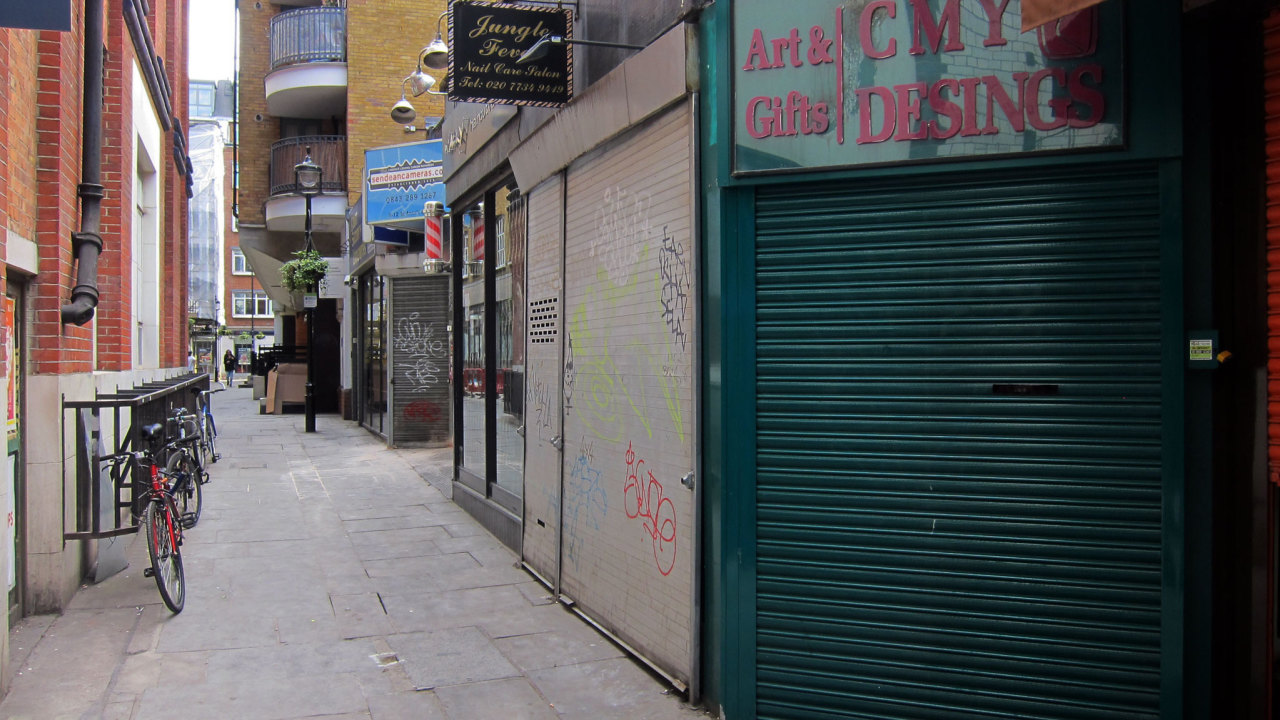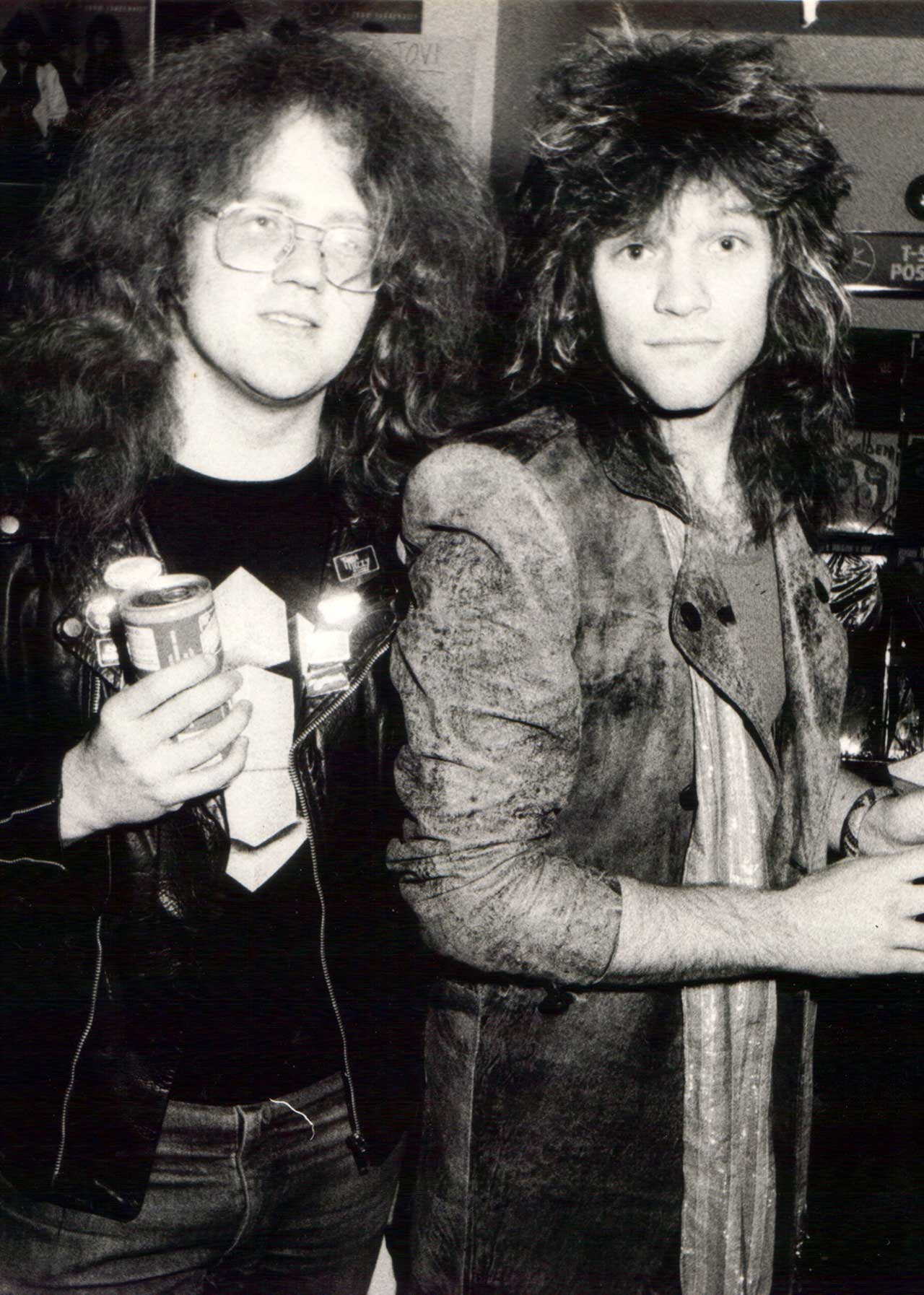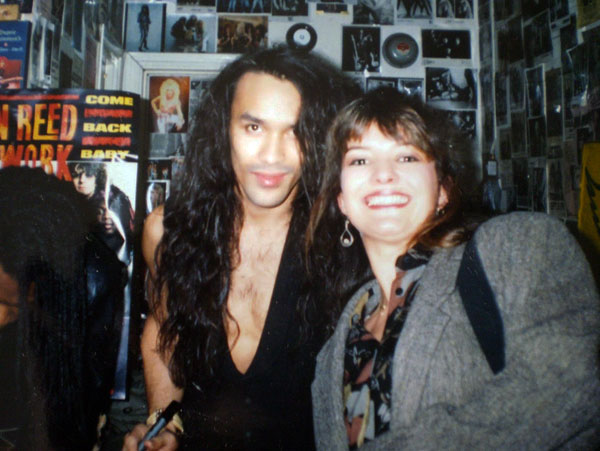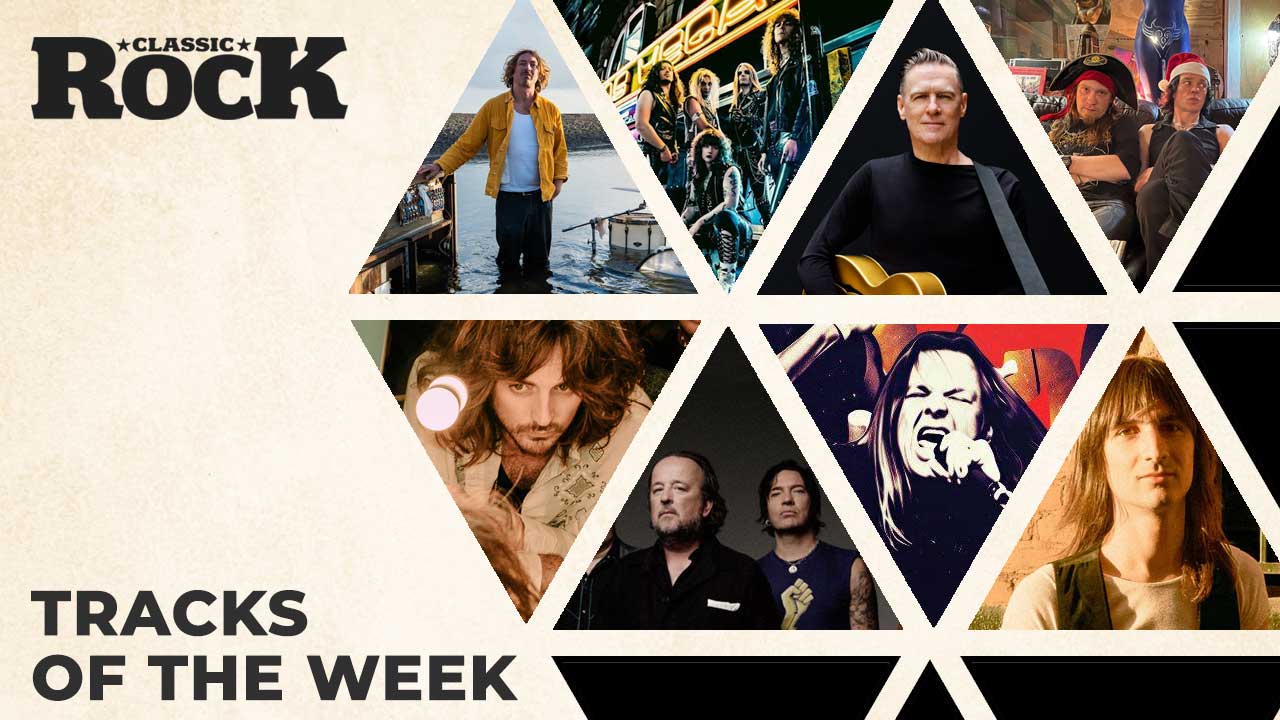Remembering Shades, the greatest record shop of them all
In one of Soho's darkest corners, something stirred... and it was loud

As glam rock exploded in London, one record shop found itself at the epicentre of the excitement. It was down a set of stairs in a gloomy Soho alley, and its name was Shades.
Shades was started by Mike Shannon in 1978 in a lean-to in St. Anne's Court, Soho. He'd been bringing records over from Germany to sell, and assumed control of the premises when its original tenants, a pair of mystery New Zealanders, disappeared. In 1984 the shop moved to a basement in the same alley, and found itself at the the epicentre of a burgeoning heavy metal scene.
We spoke to Kelv Hellrazer, who worked at Shades for five years, and to some of the regulars, and asked them to tell us what it was like.

Kelv Hellrazer: “I was a customer at first. And when they expanded the shop they offered me a job. I was working for the Government, round the corner in Great Marlborough St. They thought I had my act together. Little did they know! We were in there while it was being built, so half of it was cordoned off, but that added to the charm. And we just got busier and busier. We were a phenomenon.”
Dave Ling: “It was the only shop of its type, a meeting point for all sorts of people. I used to spend most Saturdays in there.”
Malcolm Dome: “Parties were a regular feature of the Saturday nights. Every week. At eight o’clock the doors were locked, and out came the booze — although, to be honest, there was a lot of drinking during the day — and people would stay in there until the early hours. It was a bar, not just a place that people went to buy records.”
Dave Ling: “They had all the records before anyone else had them. And they were bought in bulk, so were on sale at decent prices. It was the mecca of rock music in London.”
Sign up below to get the latest from Classic Rock, plus exclusive special offers, direct to your inbox!
Kelv Hellrazer: “They discovered so much stuff. The shop was selling tapes of Metallica before they got signed. They kind-of invented thrash. Thrash metal, death metal, they came up with those terms.”
Dave Ling: “They used to place these incredible ads in Kerrang! and Sounds, which were symptomatic of how wonderful the place was. Dave Constable was a real character, and he used to announce his verdicts of new records in the ads: ‘The New Metallica: Buy or Die!’, that kind of thing.”
Kelv Hellrazer: “We were telling the magazines what to look at, and finding bands. I would fly to America to look for bands, while they were waiting for bands to come to them. The magazines had all these resources at their disposal, but I could go out and wipe the floor with them! I found Poison. I lived and breathed that music.”
Malcolm Dome: “They just loved to stock what they liked. I honestly think that if they’d came across an album and hated it, they wouldn’t stock it, even if people thought it might sell like crazy. It was by fans, for fans.”
Dave Ling: “It was a proper scene. You’d go into Shades, see what was new, then go into the Ship [a pub round the corner on Wardour St], before heading off to the Marquee. They called it the Wardour St. triangle: the area between The Ship, The Marquee and the St. Moritz club. Shades was very much part of that scene.”

Geoff Barton: “The important thing about Shades is that they were all characters. They weren’t faceless people behind a counter. It was an adventure going in there. You never knew what to expect. It was entertaining. And they did it for the love of the music, first and foremost, not necessarily to make money or sell mountains of records or to open branches in Hemel Hempstead.”
Dave Ling: “Bon Jovi did a signing there. W.A.S.P. Queensrÿche. It was the first place I met Lars Ulrich.”
Kelv Hellrazer: “The Bon Jovi signing was around the time of 7800° Farenheit. They did it in the day, and they played the Dominion in the evening. Women everywhere! David Bowie came into the shop. Slayer. Metallica. I gave Lars Ulrich a Diamond Head acetate. Poison, Skid Row, Pete Way. He was drunk as a skunk — walked down the stairs, shouted “hello!”, then turned round and left. Paul Stanley and Gene Simmons came in once. Paul Stanley didn’t say a word. I served Gene, and he tried to pull some crap with me, but no chance. He was doing an English accent, thinking he was funny, and he wasn’t. He tried to get a discount on a picture disc, and I wouldn’t give it to him.“
Malcolm Dome: “The success of the signings took the record companies by surprise. They weren’t used to dealing with these larger-than-life characters. It was a muppet show!”
Julia Gibbs: “I moved to London when I was 21 in 1978, so I was right on the doorstep. I went to a lot of gigs and signings. The shop was a place that any rock fan worth their salt knew about!” [Below: Julia at a Shades signing with Dan Reed]

Kelv Hellrazer: “Some amazing stuff happened down there. I don’t know how we did any work. It was like being in a rock band. I never capitalised on it as much as I might have, but it could get very silly. Let’s just say that the counter was used for a lot more things than just serving!”
Dave Ling: “Eventually the big chains wised-up. They realised there was a market for the kinds of records Shades was selling, and started to get them in more quickly. Mike Shannon, the guy who owned the place, was seriously tempted to open up in Newcastle and Manchester and build a network of stores, but it never happened and the business tailed off. Instead, Virgin Megastore and HMV got in on the act.”
Geoff Barton: “Tower spelt the demise of Shades. They opened up in Piccadilly Circus and siphoned off all Shades’ business overnight. It was cheaper, and for all that community spirit, at the end of the day it comes down to how deep your pockets are.”
Kelv Hellrazer: “Tower records didn’t affect us. It was grunge. That did for us.”
Geoff Barton: “Everything had exploded by that point. It was less of a cottage industry, and there were more outlets for everything.”
Malcolm Dome: “Nothing took over. People dispersed to this store or that store. And people no longer came to London just to visit the shop. They went to their local store instead. The scene had splintered into so many niches and sub-niches, and one store couldn’t deal with everything.”
Kelv Hellrazer: “It was the best five years of my life. Never to be repeated. It was like being a king. Everything was great about it. I had access to so many bands. It wasn’t like a job, and it’s been very difficult for me to have a job ever since! But I have no regrets”.
Shades closed in 1992. Kelv Hellrazer now runs AOR Boulevard Records.

Online Editor at Louder/Classic Rock magazine since 2014. 39 years in music industry, online for 26. Also bylines for: Metal Hammer, Prog Magazine, The Word Magazine, The Guardian, The New Statesman, Saga, Music365. Former Head of Music at Xfm Radio, A&R at Fiction Records, early blogger, ex-roadie, published author. Once appeared in a Cure video dressed as a cowboy, and thinks any situation can be improved by the introduction of cats. Favourite Serbian trumpeter: Dejan Petrović.
